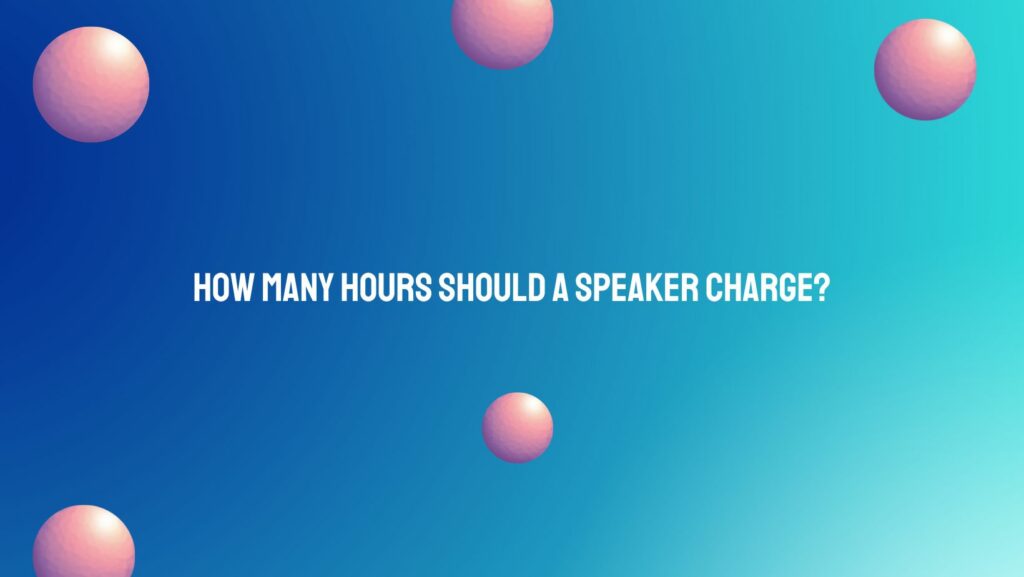Wireless speakers have become a ubiquitous part of our modern audio experience, delivering sound quality and convenience in a portable package. One common question that echoes among users is: “How many hours should a speaker charge?” In this exploration, we will dive into the factors that influence the ideal charging duration for speakers, providing valuable insights to ensure users strike the right balance between charging efficiency and battery health.
The Battery Symphony:
At the heart of every wireless speaker lies a rechargeable battery, a silent powerhouse that dictates the speaker’s lifespan and performance. Charging a speaker is not a one-size-fits-all scenario, as several factors come into play to determine the optimal charging duration.
- Battery Capacity:
- The most significant factor influencing the charging time is the capacity of the speaker’s battery. Speakers with larger battery capacities will naturally take longer to charge compared to those with smaller capacities. High-capacity batteries often deliver extended playback time, but they require proportionate charging periods.
- Charging Technology:
- The charging technology implemented in the speaker plays a crucial role in determining the ideal charging duration. Advanced charging technologies, such as fast charging or quick charge features, can significantly reduce the time it takes to replenish the battery. However, it’s important to note that not all speakers support these rapid charging features.
- Power Source:
- The power source used for charging is a key consideration. Connecting the speaker to a power source with higher output, such as a wall charger, can expedite the charging process. Conversely, charging from a lower-output source, like a computer USB port, may extend the charging duration.
- Charging Conditions:
- The ambient conditions during charging can influence the charging time. Charging a speaker in a cool environment may be more efficient than doing so in a warmer setting. Extreme temperatures can impact the efficiency and health of the battery.
- Battery State:
- The initial state of the battery also plays a role. A completely depleted battery may take longer to charge than one that still has some residual charge remaining. Additionally, the health of the battery over time can affect the charging efficiency.
Manufacturer Recommendations:
To determine the ideal charging duration for a specific speaker, users should refer to the manufacturer’s guidelines provided in the user manual. Manufacturers often provide insights into the expected charging time under optimal conditions and may offer recommendations on charging practices to maximize battery health.
Balancing Act:
Achieving the perfect balance between a quick recharge and ensuring the longevity of the battery is crucial. While it may be tempting to use fast-charging features to get back to your music swiftly, understanding the specific needs of your speaker’s battery is essential for maintaining optimal performance over time.
Conclusion:
In the evolving landscape of portable audio, the ideal charging duration for your speaker is a nuanced consideration. A blend of factors, including battery capacity, charging technology, power source, conditions, and battery state, contribute to the charging time. By understanding these elements and adhering to manufacturer recommendations, users can ensure their speakers are charged efficiently and maintain peak performance for the long haul. Whether gearing up for a backyard barbecue or enjoying a quiet evening indoors, the art of recharging your speaker adds a symphonic touch to your audio experience.


